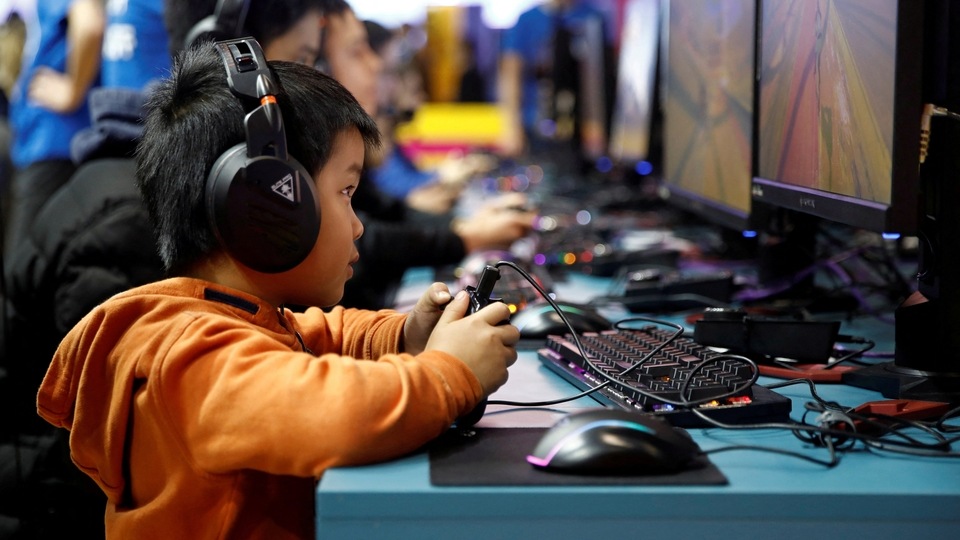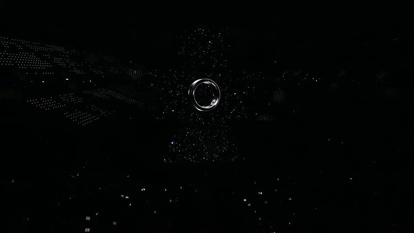‘Assassin’s Creed’ Creators Cling to Family Control at Ubisoft
Recent stumbles have pummeled the company’s shares, making it a prime takeover target. But will the Guillemot brothers let go?

Every second Monday of the month for over three decades, the five Guillemot brothers — whose company gave the world such blockbuster video-game series as the Assassin's Creed, Rayman and Rabbids — have gotten on a call from their homes in London, New York, Paris and Brittany.
Often stretching into the wee hours of the Paris morning, the chats on everything from industry trends to threats from the metaverse have helped the brothers forge a common vision for Ubisoft SA, the company they founded in the 1980s in a sleepy northwestern French town, catapulting it into one of the largest, stand-alone studios in the $200 billion global video games industry. Now, that vision is being tested by a series of crises.
From a high-profile sexism and harassment case in the corporate suite, a pact with China's digital giant Tencent that has angered minority investors, delays in the release of new games, canceled titles that will result in the biggest loss in the company's history and its first-ever labor strike, Ubisoft seems to have lost the plot.
“The group's messaging is no longer reliable and the disappointments are following one another at too high a rate, which seems to testify that there's a truly structural problem within the group,” said Alban de Preaubert, a partner and fund manager at Sycomore Asset Management, which sold its shares in the company in January.
The string of setbacks has led to a more than 55% plunge in Ubisoft's shares since August, which could make it a prime takeover target in an industry that saw Microsoft Corp. last year offering $69 billion for Activision Blizzard Inc. But investors say the brothers' deal with Tencent, which makes any potential takeover harder, shows their determination to keep control even as Big Tech giants from Disney and Microsoft to Apple, Amazon and Meta gobble up independent studios or create their own content in the intensifying battle for gamers' attention.
Ubisoft, which fought off a takeover attempt in 2018 when its shares were at about €100, is now trading at around €20. The Guillemots' Tencent deal, which seems to have put any potential takeover by the Chinese company or any other entity on the backburner, is seen by investors as evidence of the corporate-governance pitfalls at family-controlled entities. The brothers' efforts have come against a bumper year for M&A in the sector last year, with a record 324 deals, according to a report by investment bank Drake Star Partners. Sony bought Bungie Inc. for $3.6 billion and a whole slew of other smaller studios, while Tencent's Chinese rival NetEase snapped up Quantic Dream SA, France's second-biggest studio.Ubisoft Chief Executive Officer Yves Guillemot brushes off concerns, saying in an interview that the family isn't closing the door on a potential takeover, noting that the Tencent agreement doesn't preclude such a deal.
The pact “doesn't prevent us from talking with whoever we want, and work with whoever we want,” he said. “The market generates discussions all the time. It is part of an industry that recomposes itself... a lot of things will happen because the market of $200 billion has not many players with more than seven or eight billion in revenue… This market has not yet consolidated.”
But in September, the brothers sold a 49.9% stake in their holding company, Guillemot Brothers Ltd., to Tencent, in a deal widely seen as an attempt to keep predators at bay. The €300 million pact, which valued Ubisoft shares at 80 euros each — almost twice the trading price at the time — let Yves continue as CEO and kept the brothers on the board. Tencent's stake in Ubisoft is capped at under 10% for eight years and it has no operational veto rights. It also can't sell its shares in Ubisoft for five years, after which the Guillemot family has the right of first refusal.
“The deal was seen as a sort of poison pill preventing any M&A,” said Charles-Louis Planade, an analyst for TP ICAP Midcap.
The Guillemot family and Tencent together own about 25% of Ubisoft and 29.7% of its voting rights. To Planade it's not inconceivable for the company to be taken over — for the right price.
“If a buyer made an offer for the whole group at 50 euros a share, it would get a majority of the shares by far — even if the family didn't bring its shares,” he said. “This scenario is not on the table, but it shouldn't be ruled out.”
Some industry observers say the Guillemot brothers are being naive about Tencent, the world's biggest video games company. Tencent will want a bigger say in its investment if Ubisoft continues to stumble, said one industry executive. For now, the Chinese company seems supportive — at least publicly, calling Ubisoft “a great company,” while declining to comment on the company's recent flubs.
Before striking the Tencent deal last year, Ubisoft has resisted being taken over because “there was the specter of its dismemberment,” said Christian Guillemot, who at 56 is the youngest brother. “The Americans start by keeping what they want, and sell what they don't want.”
In 2015, Ubisoft's stable of titles caught the eye of the brothers' billionaire compatriot Vincent Bollore, whose Vivendi SA had bought a majority stake in Activision Blizzard in 2008. Bollore launched a hostile raid on the studio, accumulating a 27% stake. When it became clear, however, that the brothers weren't going to cede control, Bollore walked away. It was at that point, in 2018, that Tencent came to the rescue, buying an initial stake in Ubisoft from Vivendi.
Ubisoft still has a lot going for it. Outside of Chinese gaming giants, it has the biggest production capacity in the world in terms of the number of developers and a unique games portfolio by the number and diversity of its brands. It owns most of its intellectual property, with series like Assassin's Creed and Rabbids delivering revenue from merchandising and animés. Assassin's Creed, one of the most popular sagas in gaming with more than 200 million units sold worldwide since 2007, is being adapted for a live-action original series that will stream on Netflix.
Where Ubisoft has fallen recently is on execution. On Jan. 12, it forecast an operating loss of €500 million for the year ending in March, pointing to disappointing holiday sales of recent games, Just Dance 2023 and Mario+Rabbids: Sparks of Hope. Its Skull & Bones naval battle game was delayed — for the sixth time — to Spring 2024.
Yves Guillemot blamed the company's woes on the post-pandemic shift to working from home and recessionary pressures cutting discretionary spending. “At the individual level, everyone works the same, if not more than before, but at the collective level, as teams do not meet, efficiency falls,” he said.
Ubisoft will focus on “mega brands” and nix some smaller titles, he said. It is scheduled to release this year the latest version of Assassin's Creed, called Mirage. It is also working on a video-game version of James Cameron's Avatar, part of an alliance with Disney that will include Star Wars games in the future.
In an email to employees after the recent failures, Yves said, “The ball is in your court to succeed in launching this line-up in time and with the expected quality, and to show everyone what you are capable of.”
The message went down like a rock, with staffers saying they were being blamed for sales shortfalls — and prompting the CEO to apologize. A €200 million cost-reduction plan over two years by not replacing exiting employees provoked Ubisoft's first labor unrest on Jan. 27, with some employees suspending work for a few hours
Employee relations had been already frayed by a high-profile scandal in the corporate suite. For years, it was an open secret within Ubisoft that sexual harassment and sexism were rampant at the company, with little heed paid to victims' complaints. But with the #MeToo movement drawing public attention to the cases, Ubisoft was forced in 2020 to deal with its toxic environment. The accusations reached the highest echelons, bringing down, among others, Serge Hascoet, the company's chief creative officer and a close collaborator of the CEO.
While the departure of Hascoet was welcomed, it didn't stop the company from “promoting known offenders from studio to studio, team to team with no repercussions,” an employee group called “A Better Ubisoft” says. Yves Guillemot is still fighting a lawsuit from several alleged victims and a union. Ubisoft says it has thoroughly investigated each case and that the people concerned have either been cleared or appropriately disciplined.
Ubisoft's fall from grace has followed some heady decades of growth after its unlikely beginnings in Carentoir, a tiny commune in northwestern France, where the Guillemots' parents ran a business specialized in fertilizers. The father, Marcel, a technophile, was convinced in the 80s that computers would change agriculture.
The family set up shop to sell computers and software, and in 1983 began importing video games from London. They quickly became distributors and video-game creators. The family's original warehouse still stands in the village, tucked between a funeral home and an abandoned disco — it is now full of gaming gear and cardboard boxes, ready to be shipped worldwide.
Ubisoft moved its headquarters to Paris, opened offices in Bucarest and Shanghai, and rose to international fame in 1995 with Rayman, running on the first Sony Playstation console.
For all that, the business remained a family affair. The brothers' mother, Yvette, who died in 2021, was Ubisoft's chief accountant until it was listed in 1996 – she and her team prepared the IPO documents. Over the years, the brothers developed areas of specialty. Michel Guillemot, the financial expert, gets on the family calls from London, while Gerard lives in New York and handles Ubisoft's film and series adaptations. Claude, the oldest, is the head of Guillemot Corp., which sells gaming gear. Christian runs a smart-glasses business from Brittany. On Ubisoft matters, the middle brother Yves has the last word. He says he spends time trying Ubisoft games in his fourth-floor office at the company's headquarters on the outskirts of the French capital, with a planted terrace overlooking the Vincennes park.
Over the years, the brothers have been ensuring the business is kept well within the family. Some of their children work for Ubisoft, and last year Claude, 66, proposed donating 22% of the gaming gear seller Guillemot Corp. to the brothers' 17 children and their five spouses, to get them to “feel more involved.”
As for Yves, he has no intention of letting go. “I'm still young,” the 62-year-old said.
Catch all the Latest Tech News, Mobile News, Laptop News, Gaming news, Wearables News , How To News, also keep up with us on Whatsapp channel,Twitter, Facebook, Google News, and Instagram. For our latest videos, subscribe to our YouTube channel.

























